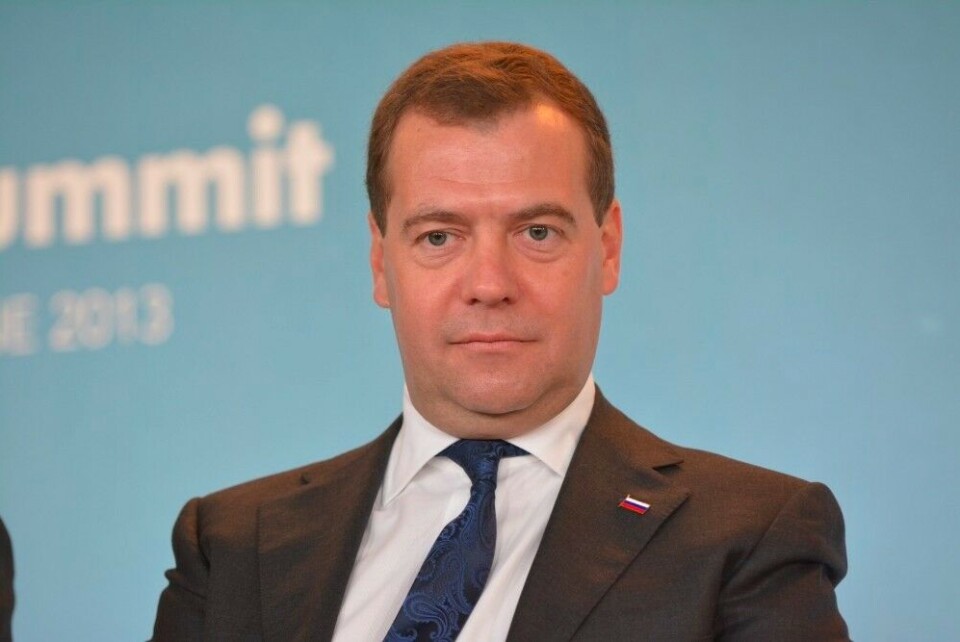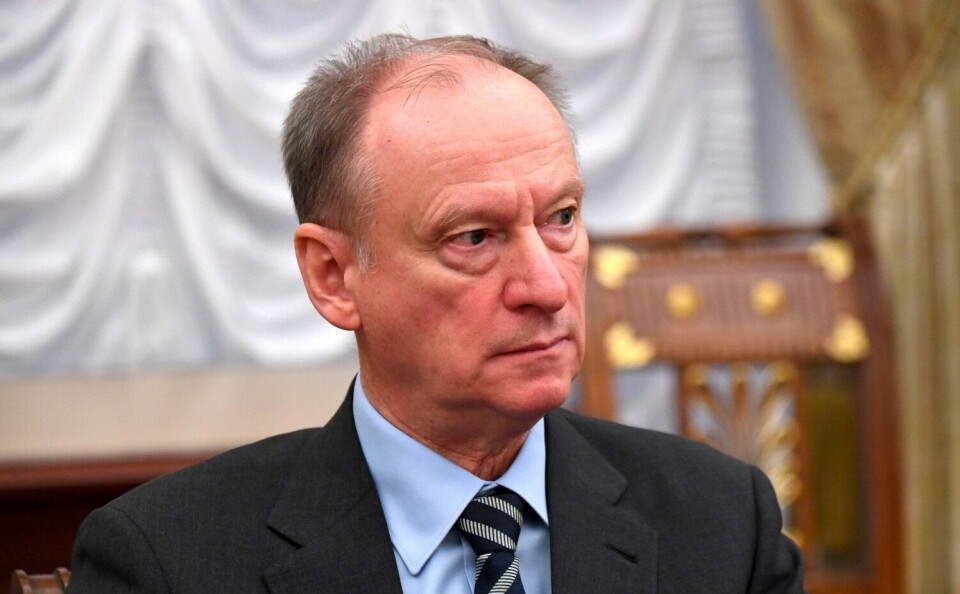
Moscow national security chiefs fight western windmills
Security Council Secretary Nikolai Patrushev warns against the EU's push for renewable energy, and Council Deputy Head Dmitry Medvedev argues that Western countries' drive for environmentally high standards in the Arctic is politically motivated and aimed at weakening Russia.
Russia is experiencing an unprecedented warming that is about to dramatically change climate across the country. And the situation is most extreme in the country’s far north where average temperatures in only few years have increased by several degrees.
However, it is hardly the detrimental consequences of climate change that is the key Arctic concern of Russia’s top national security leaders.
When Dmitry Medvedev in early December chaired a meeting in the Arctic Commission, a body under the Security Council, his main message was that the West is deliberately trying to undermine Russian national interests in the Arctic.
The former president and prime minister agrees that there are serious climate challenges in the region and that they are man-made, but he is clearly unwilling to address them with western partners.
“Recently, we have seen constant attempts from western countries to politicise the situation in the Arctic,” Medvedev said in the Arctic Commission meeting. “They arouse feelings around real and imagined problems, [and] in discussions of these questions we are constantly pushed to accept environmental standards that are designed to encroach on our economic interests in the most serious way,” the former state leader underlined.
According to Medvedev, western counties are trying to limit economic activities of Russian companies in the region, something that poses a “threat to Russian national security.”
New and stronger measures must now be taken to counter the pressure, he argues.
“Our practical work must be designed in a way that does not give the slightest ground for such actions and accusations,” he underlined and added that “politicised accusations must be smoked out and fended off at an international level.”
The Arctic Commission meeting was attended by at least eight government ministers, including Deputy Prime Minister Yuri Trutnev. In the room were also several leaders of key state organisations, the Council informs.
The speech follows Russia’s first high-level meeting under its presidency of the Arctic Council. The Senior Arctic Officials’ (SAO) plenary meeting took place on the 2nd of December in Salekhard.
The Russian Security Council is headed by President Vladimir Putin. Medvedev serves as his deputy.
Also Council Secretary Nikolai Patrushev actively engages in issues of environment and Russian Arctic development. In an article in newspaper Komsomolskaya Pravda, the former chief of the FSB lashes out against international efforts to invest in renewable energy.

Patrushev argues that solar and wind power farms do actually not represent environmentally friendly technology. On the contrary, the turbines and solar panels are built with harmful substances and they both require vast territorial space, he says in the interview.
He also underlines that solar panels “emit gases that are dangerous to humans.”
However, the key issue of Nikolai Patrushev are not the clearly false and misleading information about alternative energy tech, but rather the threats that the ongoing international energy transition poses to Russia.
According to the powerful national security leader, Russia is insisting that “national interests are observed in the ongoing “green” energy transition.”
He argues that the West is increasingly meddling in internal affairs of other countries in its bid for lower carbon emissions. And he makes clear that Russia is ready to defend the position of its oil and gas industry.
He ridicules the proposed introduction of an EU carbon tax and also the efforts to develop wind and solar power projects in Ukraine. And he argues that Russia actually is very concerned about the environment.
“Russia is an environmentally responsible country,” he underlines.

















